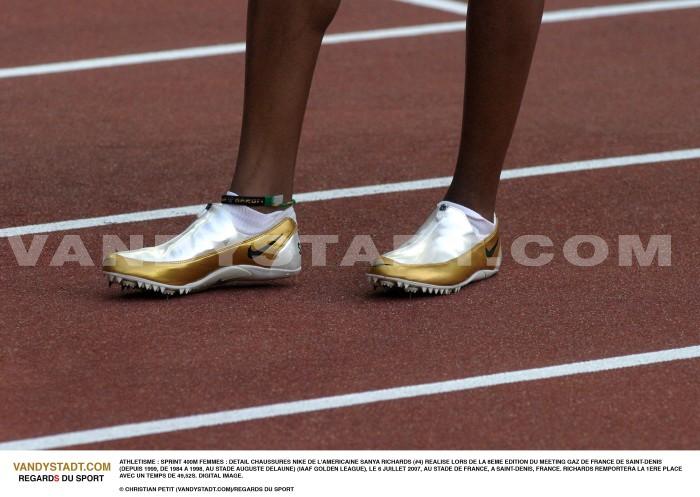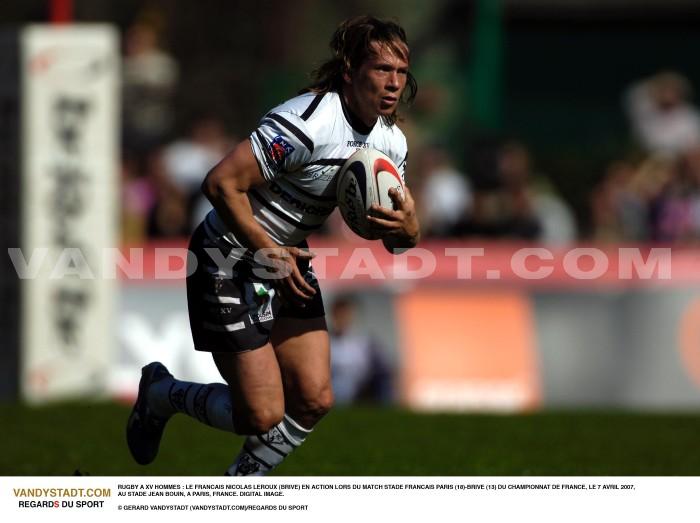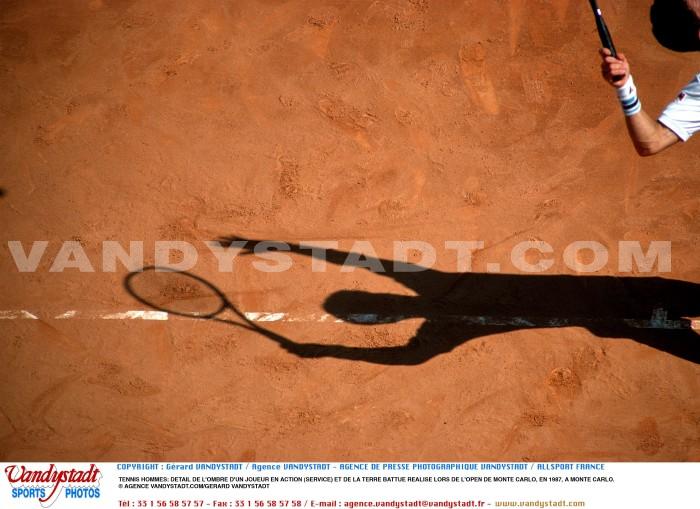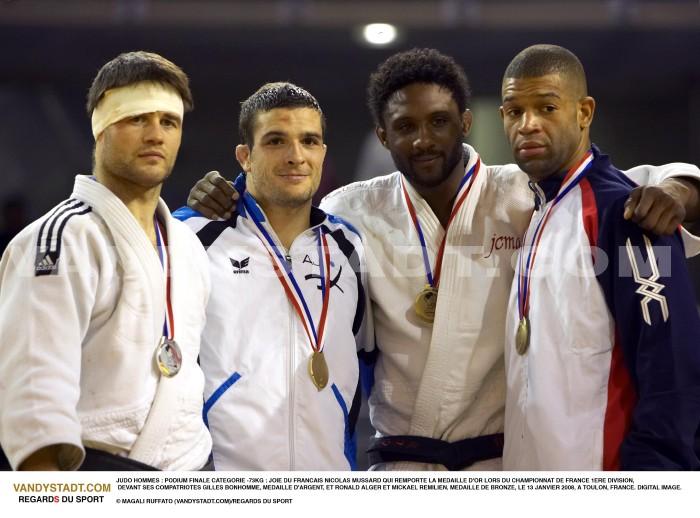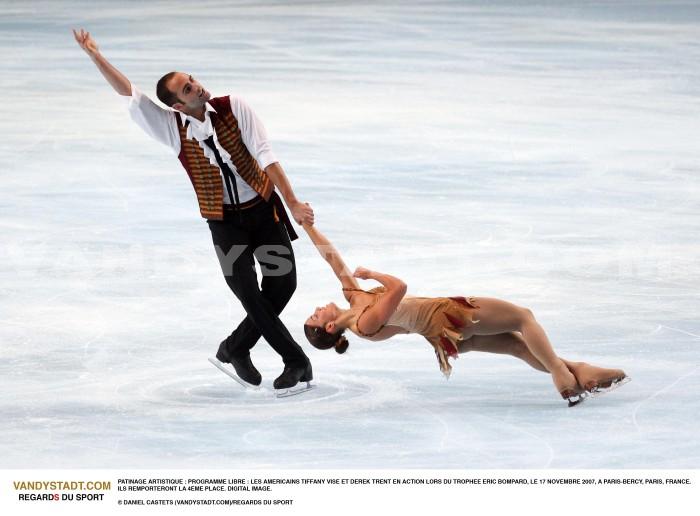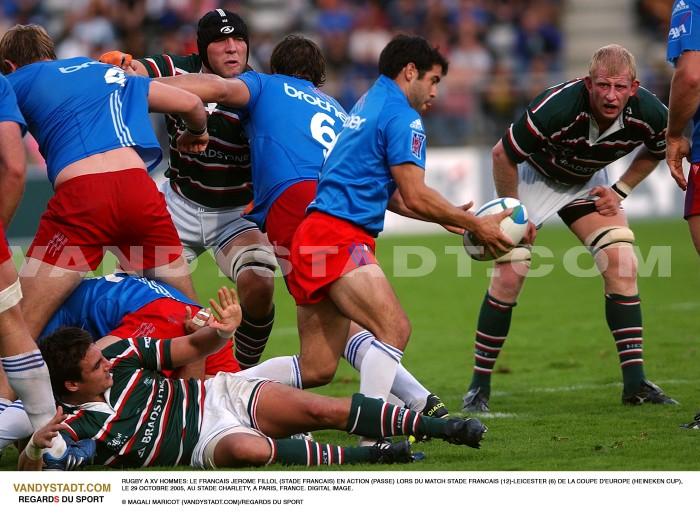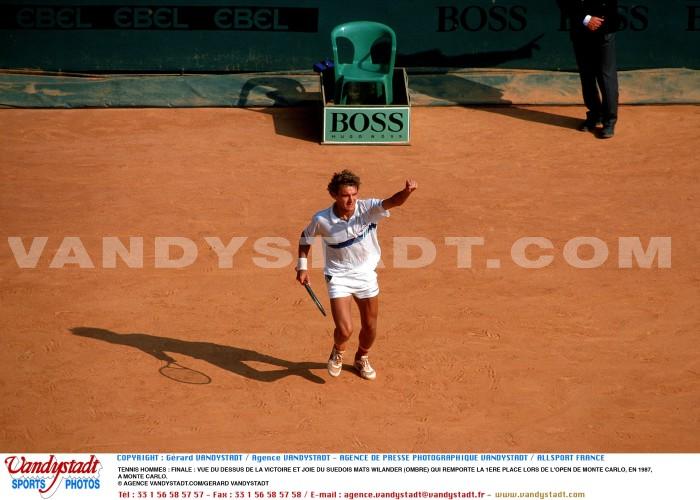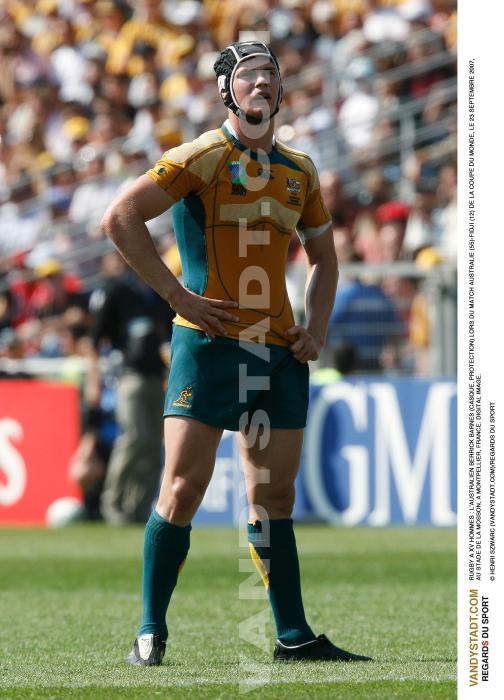Jeux Olympiques été - Olympic Summer Games history
The Summer Olympics
![]()
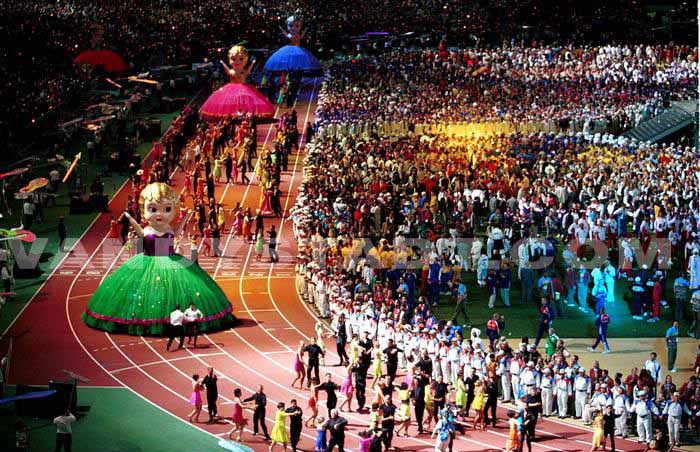
The Olympics are a sporting event that takes place every four years, bringing together athletes from around the world in peace and respecting the principles of universal ethics.
The nine sports
inaugurating the Olympics of the modern era were: athletics, cycling, thefencing, the gymnastics, the weightlifting, wrestling, swimming, the Tennis and Shooting.
Olympism in Antiquity and women
Barring women from participating, married women could not even be spectators! In honor of Hera, wife of Zeus, a particular festival was organized to which young girls could participate, but only of foot races.
Women made their first appearance in the Summer Games in 1900 (the first was the French Filleaul Brohy Mrs. and Miss Marie ohni croquet).
The three Olympic sports are the only women's gymnastics rhythmic, Swimming Synchronized and Softball. The only sports played by men are baseball, the boxing and Greco-Roman.
The Olympic Games are organized by the International Olympic Committee (IOC) whose headquarters is in a neutral country, in Lausanne, Switzerland. The Games site was selected six years in advance by the IOC
History
The Olympics were held every four years in high summer. They were sponsored by the Elis who designated for this purpose a panel of ten magistrates, judges or Hellanodikai the Greeks, both organizers and referees. Their opening was announced by Ambassador Elis who traveled from town to town, received everywhere with the highest honors. After their passage, a sacred truce suspending the hostilities, and makes the inviolable sanctuary of Olympia: the pilgrims were in fact able to safely undertake a journey often very long and participate in ceremonies.
The program tests varied continuously from 776 BC when the king of Elis Iphitos have founded the truce and held the first celebration. It is possible, if not insured, which has played the first stage of the race. The winner will cease thereafter to give his name to the Olympiad, where he had triumphed. Soon, in any case, other competitions were added. In the early fifth century, when the Games reached their peak, there were thirteen rounds: four foot races, namely the point (192.27 m), diaulos or double stage, dolichos distance running, the hoplitodrome or arms race, three martial arts, wrestling, boxing and pankration, a composite event, the pentathlon, where competitors had to be measured at the stage, long jump, the discus throw in the javelin and the fight, two horse races, mounted on horseback and chariot with four horses. Finally, in addition to adults, children (junior) competed for the stage race, competed in the fight and boxing. This program, resulting in losses as well as additions, yet experienced many changes that led, in particular, the disappearance of horse events because of their aristocratic and their cost.
The number of competitions and the competitors required to repairShooting Games over several days, especially as religious ceremonies mingled intimately to sporting events. The first day began with a sacrifice to Zeus. Then judges and athletes swore to follow a careful and strict regulation: those who had violated pay heavy fines. The arbitrators then set out by shootingat age out "series" of each event. In the evening, another sacrifice was offered to Pelops. The second day was devoted to the stage at diaulos dolichos and the third in pentathlon. The evening was the stéphanèphorie, who repeated the fifth day the victors received any reward for a crown cut, with a golden sickle, the olive tree planted by Hercules himself. They went in procession to dedicate the temple of Zeus while they performed in their honor hymns for the occasion, or epinikia, sometimes due to the genius of the greatest poets. In the succeeding stéphanèphorie social gatherings which were prolonged sometimes far into the night. The fourth day saw them play the tests wrestling, boxing and pankration, following those of the "juniors" and hoplitodrome after which came the horse show. The last day, winning personalities and officially closed the festival by a massacre of Zeus and a large banquet.
The event brought together participants in the thousands, had humble beginnings though she was under the patronage of illustrious hero, Pelops, Hercules, supposed to have shown humans the way the stadium and the hippodrome. The beginning of his Panhellenic radiation began when Sparta shall delegate its champions (732). His example was soon followed by all other cities: an Athenian victory there in 696, an Ionian in 688. This reputation leads to the shrine in the whirlpool of international conflicts. We would dispute the mastery for atTirfirst rays of his glory. At Elis, supported by Sparta, oppose the Arcadians of Pisa, allied with the Greeks, who manage to win sometimes, but always so fleeting, until Sparta, having extended its hegemony in the Peloponnese, destroyed Pisa ( 572) and ensures Eleans authority which will not be disturbed only once in 364 by the Arcadians, despite the decline of the Spartan.
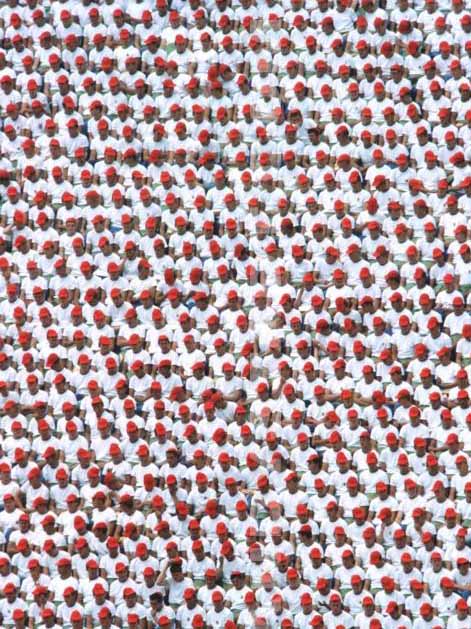
This long peace, after allowing the games to reach their peak when Pindar celebrated in verse the immortal glory of the winners, see begin a slow decline, due to multiple causes. The fervor inspired ideals borrowed from the aristocratic society cools as the progress of democracy have created a new type of man. The development of professional sports competitions degrades at a show in which actors are victims of contempt which attaches to all trades mercenaries. The conquest of Alexander moved eastward center of gravity of the Hellenic world. The mother country was depopulated, and Olympia was drawn into its decline. Outstanding manifestation of Hellenism, the Games finally opened to competitors barbarians who betray the spirit, even if they sincerely believe assimilated. Finally, the Romans after the conquest, long held in suspicion practices they did not understand where they feared a political demonstration, and they spared no looting in the sanctuary. Hence we remove the program as the aristocratic races the chariot race and multiply those where violence reigns. Efforts philhellenes emperors, Nero, Hadrian, can not even slow the decline. After them, the celebrations are more episodic. The latest blow comes from Christianity, which is fighting the very principle of athletics. In 393, Theodosius the Great prohibited the Games.
Despite two attempts at renovation of the rich Greek Zappas in 1859 and 1870, it was the call of Baron de Coubertin November 25, 1892, when the fifth anniversary of the Union of French Societies of Athletic Sports Pierre de Coubertin that gives conference on modern sport. In conclusion, he said: "I hope that the revival of athletics in the world has to conclude the necessary restoration of the Olympics." Indifference. But the Baron would not let go.
Through the Union, he organized in June 1894, a congress. Two topics are on the table: amateurism, a pretext, and the revival of the Olympics, his true motivation. On 23 June a resolution was adopted. The International Olympic Committee (IOC) was founded. Lens, Paris 1900. But Pierre de Coubertin collides with two obstacles. The French public does not understand the Olympic ideal and the sports federations do not want to interfere with each other. Interest is strongest in Greece, the first Olympics of the modern era will therefore be celebrated in Athens in 1896. The country has witnessed the death of the Games will revive.
In 1916, twenty years after Athens, the Olympics are due to the First World War, a forced break. Ironically, the German capital Berlin, which was welcome. The Olympic cycle resumes after the "der des der" and receives the Antwerp Games in 1920 in compensation for injuries to Belgium during the war. The losers of World War - Austria, Bulgaria, Germany, Hungary and Turkey - are not invited. They return four years later, except for Germany, which she must wait eight years. Despite the little money available in the post-war movement revives Olympic success. He even extends his empire in 1924 with the first Winter Olympics.
In the early 1920s, pressure on the IOC by some countries, Canada and Switzerland led to the creation of the Winter Games is increasingly fierce. London in 1908, had already submitted figure skating ... summer! Antwerp also with a bonus, the first Olympic hockey tournament on ice. However, many cities are not equipped with artificial ice rinks and can hold such competitions. There is only one solution: the Winter Olympics. This is the French town of Chamonix, Haute-Savoie, who receives the baptism of ice. In this first edition, originally called Week of winter sports, cross country skiing, speed skating and bobsled addition to hockey and figure skating. For alpine skiing, it will take Garmisch-Partenkirchen, Germany, 1936.
The war has interrupted a second time round after the Olympic summer event in Berlin, also in 1936. Twelve years would pass before it resumes. St. Moritz, Switzerland, and London, United Kingdom, the mission of reviving the Olympic flame in 1948. As in 1920, the losers of the war - Germany and Japan - are excluded. We will come in 1952.
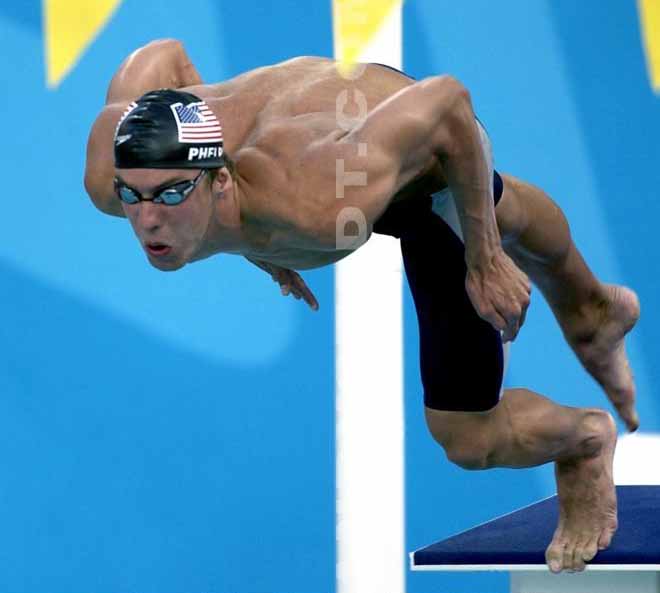
After the introduction of a component of winter and disruptions caused by the two great world wars, the Olympics live one last major upheaval in 1986 the IOC decided to separate appointments summer and winter. A new era which opens officially in 1994 in Lillehammer, Norway, with the presentation of the XVII Olympic Winter Games. For the first time in their history, the Winter Olympics and was not held that year. They are now presented in alternating and sports fans the world over have the right to a great Olympic festival every two years.
The Olympic Games are organized by the International Olympic Committee (IOC) whose headquarters are in Lausanne. The Games site was selected six years in advance by the IOC
Baron Pierre de Coubertin Frédy
(1863-1937) FRA
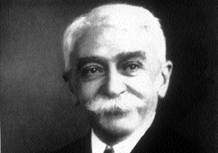
'All sports for all'
French educator, author of a book 'The Social Reform' in 1886, he was at the age of 25 years, secretary general of a "Committee for the preparation of exercises in physical education. In 1889 he represented France at the "exercise of Congress in Boston. The idea of the Olympic Games germ in his mind upon his return. On June 23, 1894, during a conference he organized at the Sorbonne for representatives of 14 countries, was voted the revival of the Olympic Games. That year and its initiative, the International Olympic Committee came into being with the first President from 1894 to 1996, the Greek Demetrius Vikelas.
The first Olympic champion of the modern era was an American student at Harvard, James Connolly (1865-1957), winner April 6, 1896 the triple jump with a leap of 13.71 meters ahead of more than one meter Alexander French Tuffèri. He took the silver medal at the height and length bronze.
The International Olympic Committee
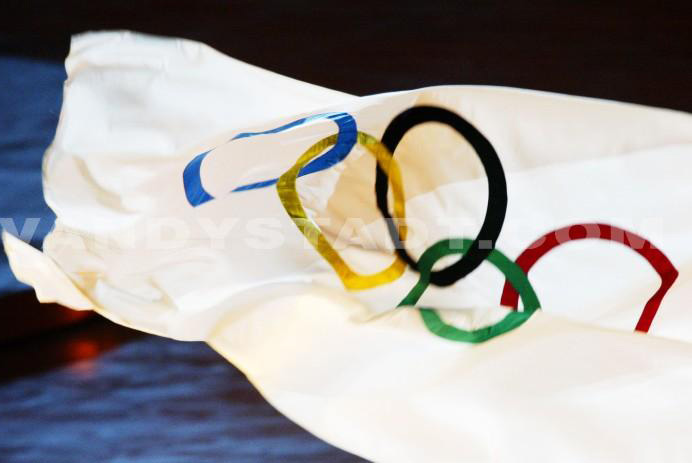
"" Olympism is a state of mind based on the equal treatment of sports which are in the world and managed democratically.
The International Olympic Committee manages the Olympic Movement including the International Sports Federations, National Olympic Committees, the Organizing Committees of the Games, the national sports associations, clubs and athletes. Its role is to promote high-level sport as well as sport for all in accordance with the Olympic Charter. It aims to contribute to BaShooting a peaceful and better world by educating youth through sport practiced without discrimination, in a spirit of solidarity, friendship and fair play. It ensures the regular celebration of the Summer Olympics in winter, and ensure by all appropriate means to promote women in sport, that of sports ethics and the protection of the athlete.
The IOC consists of a maximum of 115 members who meet in session at least once a year and elect a president for eight years and an executive committee for four years.
By retaining all rights to organize, exploitation, dissemination and reproduction of the Olympic Games, the IOC ensures the continuity of a unique and universal event created for athletes.
The Olympic Movement
The Olympic Movement brings together all those who agree to be guided by the Olympic Charter and who recognize the authority of the International Olympic Committee (IOC), namely: the International Federations (IFs) which sport is the Olympic program, the Committees National Olympic Committees (NOCs), the Organizing Committees of Olympic Games (OCOG), athletes, judges and referees, associations and clubs, and finally all organizations and institutions recognized by the IOC.
The Olympic Movement is funded first, most important, by fees paid by television stations to broadcast the Olympics and the other by a program of partnership with multinational companies.

Its activities are:
- The promotion of sport and competition through sports organizations national and international spread worldwide.
- Cooperation with public and private organizations to place sport at the service of humanity.
- Support the development of Sport for All.
- The promotion of women in sport at all levels and in all structures to achieve equality between men and women.
- Opposition to any form of commercial exploitation of sport and athletes.
- The fight against doping.
- The promotion of sports ethics and fair play.
- Raising awareness of environmental problems.
- Financial support and education in developing countries through Olympic Solidarity, an IOC institution.
It specifies that "the Olympic Movement is to contribute to BaShooting a peaceful and better world by educating youth through sport practiced without discrimination of any kind and in the Olympic spirit, which requires mutual understanding, the spirit of friendship, solidarity and fair play. "
The presidents of the International Olympic Committee
Demetrius Vikelas-GRE of 1894 to 1986,
Pierre de Coubertin, ENG 1896 to 1925,
Henri de Baillet-Latour of FRA 1925 to 1942,
Sigfrid Edström SWE-1942 to 1952
-Avery Brundage USA from 1952 to 1972,
-Lord Michael Killanin GBR from 1972 to 1980,
Juan Antonio Samaranch ESP 1980 to 2001,
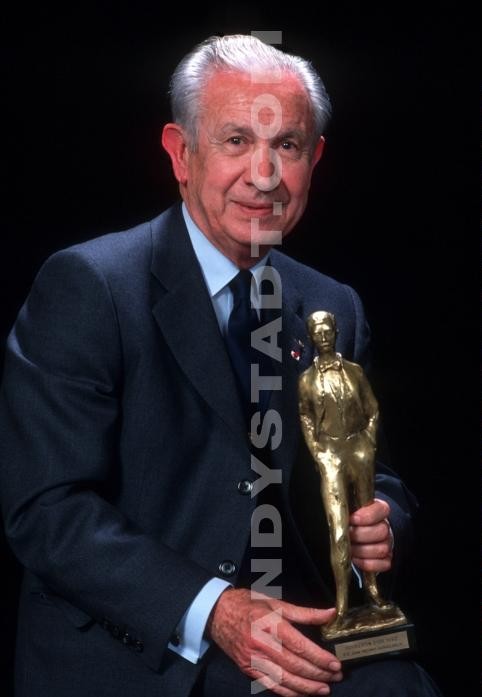
-Jacques Rogge BEL since July 2001.
The French Olympic Committee
Founded in 1894, there have been nine presidents in 115 years of existence.
- Pierre de Coubertin in 1894 to 1913
- Justinian Comte Clary of 1913 to 1933
- Armand Massard from 1967 to 1971
- Count Jean de Beaumont from 1967 to 1971
- Claude Collard from 1972 to 1982
- Nelson Paillou from 1982 to 1993
- Henri Serandour of 1993 to 2009
- Denis Masseglia since May 2009.
The English and French are official languages
Games. In cases of conflicting language, French is the language reference.
The motto of the Games"Citius, Altius, Fortius" Faster, Higher, Stronger (by Dido's father, a friend of Pierre de Coubertin).
The currency was used for the first time the Games in 1924.
Citius "Faster" .... The 100 m men: 12 "00 1896 9" 87 in 2000!
Altius 'Highest' in ... ... high jump: 1 m 81 in 1896, 2 m 35 in 2000!
Fortius "Stronger" ... ... in the shot put: 11,22 m in 1896, 21.29 m in 2000!
-The opening ceremony
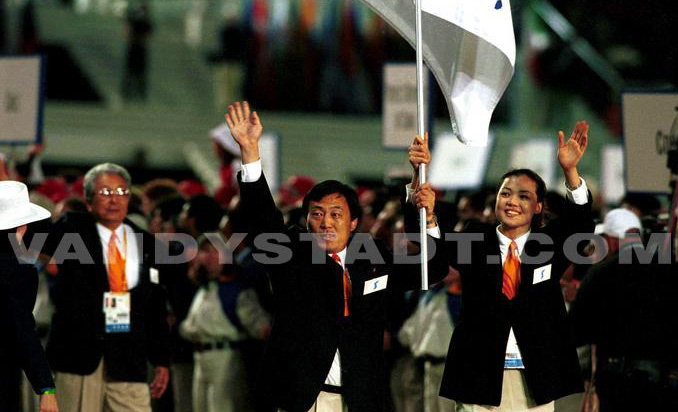
The Games were opened by a grand ceremony with a parade of athletes, traditionally opened by the Greek team making a tribute to the original Games. Then the Olympic Anthem is played and the Olympic flag is hoisted. The rider carrying the torch enters the stadium. The Olympic oath is taken by an athlete. The Games were declared open by lighting the flame. A closing ceremony ends at the Games.
- In 1908, silver medals (2nd place) and Bronze (3rd place) are emerging and are awarded.
- The Olympic Emblem

Inspired by an inscription found on an altar in the ruins of Delphi in Greece, the symbol of five rings was designed by Baron Pierre de Coubertin in 1913. It represents the union of five continents and the meeting of athletes from around the world in the Olympics. The five rings represent not a specific continent.
The colors of the five rings are interlaced from left to right: blue, yellow, black, green and red. The rings and flag were presented for the first time in 1914 at the 17th session held at the Sorbonne in Paris celebrating the 20th anniversary of the restoration of the Olympic Games.
- The Olympic Flag
.jpeg)
The Olympic flag has a white background, without border. In its center, there are five interlaced rings and arranged in two rows: one three and the other two rings. The rings of the upper row are from left to right, blue, black and red. Those in the lower row are yellow and green. It measures 2.06 m long and a width of 60 cm. It was first introduced by Baron Pierre de Coubertin in 1914 at the 17th session held at the Sorbonne in Paris celebrating the 20th anniversary of the restoration of the Olympic Games. It floated once in the courtyard of the San Francisco Exposition March 18, 1915 and was then allowed for mayor of Lausanne when the IOC set up his headquarters.
The number five, chosen by Baron Pierre de Coubertin in 1913, signifies the union of five continents (Africa, Asia, America, Oceania and Europe). The six colors (blue, yellow, black, green and red on white background, without border) are found in all the flags of the world and does not symbolize a specific continent. It was hoisted for the first time the Games of 1920 at Stadium of Antwerp and then bore the motto 'Citius, Altius, Fortius'.
It is traditionally worn in a horizontal position by eight people (representing the five continents and three representing the three Olympic values: sport, environment and culture) in the Olympic stadium during the opening ceremony. Hoisted during the opening ceremony, it is lowered at the closing ceremony of the Games. The mayor of the city host then provides the mayor of the city hosting the next Games.
The original flag was reShootingé Games in 1984 and replaced by a new flag at the Games in Seoul in 1988.
The Olympic Anthem:
It was composed by Spyros Samaras (GRE), the words from 1896 are Kostis Palamas (GRE) and adopted as the official Olympic anthem by the IOC in 1957 and played for the first time the 1960 Games.
"Ancient and Eternal Spirit, Creator August
Beauty, grandeur and truth
Descend, appear, shine as lightning
In the glory of the land and your sky.
In running and wrestling and weight
Nobles games illuminates the momentum
Prepare the crown made of branch immortal
And gives the body strength of steel and dignity.
The countryside, mountains, seas shine around you,
As a large temple made of purple and white,
And in the temple flock here all peoples
To bow down before thee, ancient and eternal Spirit "
(Translation from Greek into French)
- The TorchOn the occasion of the opening ceremony of the Olympic Games in Amsterdam in 1928 that the Olympic flame was lit for the first time.
The Torch was born in 1936 in the eleventh Berlin Olympics, the idea of investmentShooting Games modern apparatus possessed by the ancient Games. These Games saw the introduction of the torch relay under the leadership of Dr. Carl Diem, a lighted torch is carried from Olympia to the site of the Games after crossing seven countries: Greece, Bulgaria, Yugoslavia, Hungary , Czechoslovakia, Austria and Germany on a long-term total of 3 000 km. Today, the Torch, a symbol of the Games until the cauldron of the stadium opening ceremony has become an essential part of the Games. Under the Olympic Charter, the flame is lit in Olympia, the Temple of Hera in a ritual that dates back to antiquity. Accompanied by a score of vestal virgins, the High Priestess lights a torch with a mirror that captures sunlight. Deposited in a ballot box, it is subsequently transferred to the first torchbearer.
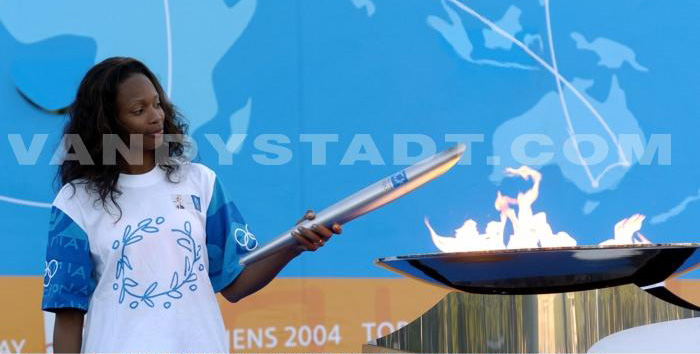
The last torchbearers were
:
-1936: Fritz Schilgen (athletics)
-1948: John Mark (athletics)
-1952: Hannes Kolehmainen (Athletics)
-1956: Ron Clarke (athletics)
-1960: Giancarlo Peri (athletics)
-1964: Yoshimori Sakai (athletics)
-1968: Enriqueta Basilio (athletics), first woman to light the flame!
-1972: Günther Zahn (athletics)
-1976: Stephane Prefontaine and Sandra Henderson (Athletics)
-1980: Sergei Belov(Basketball)
-1984: Rafer Johnson (athletics)
-1988: Chung-Kee's (athletics)
-1992: Juan Antonio San Epifanio(Basketball)
-1996: Muhammad Ali (Boxing)
- 2000: Cathy Freeman (athletics)
- 2004: Nikolaos Kaklamanakis (windsurfing sail)
- 2008: Li Ning (Gymnastics)
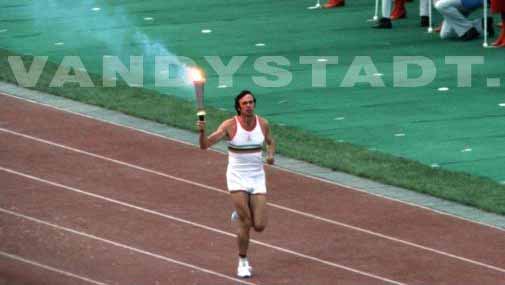
The flag bearers French
the parade of athletes at the opening ceremony
- 1924: Geo Andre (athletics)
- 1932: Jules Christmas (Athletics)
- 1936: Jules Christmas (Athletics)
- 1948: Jean Sepheriades(Rowing)
- 1952: Ignace Heinrich (athletics)
- 1956: Jean Debuf (weightlifting)
- 1960: Christian D'Oriola (Fencing)
- 1964: Michel Macquet (athletics)
- 1968: Christine Caron (Swimming)
- 1972: Jean-Claude Magnan (Fencing)
- 1976: Daniel Morelon(cycling track)
- 1984: Angelo Parisi (Judo)
- 1988: Philippe Riboud (Fencing)
- 1992: Jean-François Lamour(Fencing)
1996 - Marie-Jose Perec (athletics)
- 2000: David Douillet (judo)
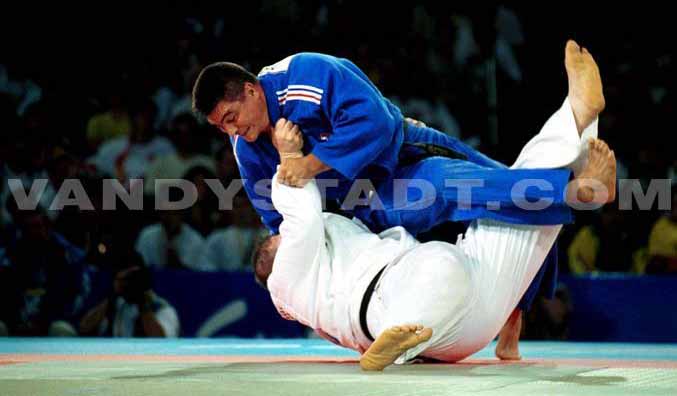
- 2004: Jackson Richardson (Handball)
- 2008: Tony Estanguet (canoe)
Olympic Oath
(originally written by Pierre de Coubertin)
Delivered at the opening ceremony by an athlete, on behalf of all athletes (reference is made to doping for the first time in 2000).
"On behalf of all competitors, I declare and affirm that we are prepared for these games with respect and submission to the rules that govern them, in a true spirit of fair competition and ethical practices through, and I promise that we will take part in these Olympic Games in a spirit of fair play for the glory of sport and the honor of our teams. "
The oath was first delivered in 1920 at the Antwerp Games.
1920: Victor Boin (water polo /Fencing)
1924: Geroge Andrew (athletics)
1928: Harry Dennis(Football)
1932: George Calnan(fencing)
1936: Rudolf Ismayr (weightlifting)
1948: Donald Finlay (athletics)
1952: Heikki Savolainen (Gymnastics)
1956: John Landy (athletics)
1960: Adolfo Consolini (athletics)
1964: Takashi Ono (gymnastics)
1968: Pablo Garrido (athletics)
1972: Heidi Schüller (athletics)
1976: Pierre St-Jean (weightlifting)
1980: Nikolay Andrianov(Gymnastics)
1984: Edwin Moses (athletics)
1988: Hur Jae(Basketball)
1992: Luis Blanco Doreste(Sailing)
1996: Teresa Edwards (Basket ball)
2000: Rechelle Hawkes (hockey)
2004: Zoe Dimoschaki(Swimming)
2008: Zhang Yining(tennis table)
In ancient times, the competitors took their oath before the statue of Zeus to swear that they were Greeks.
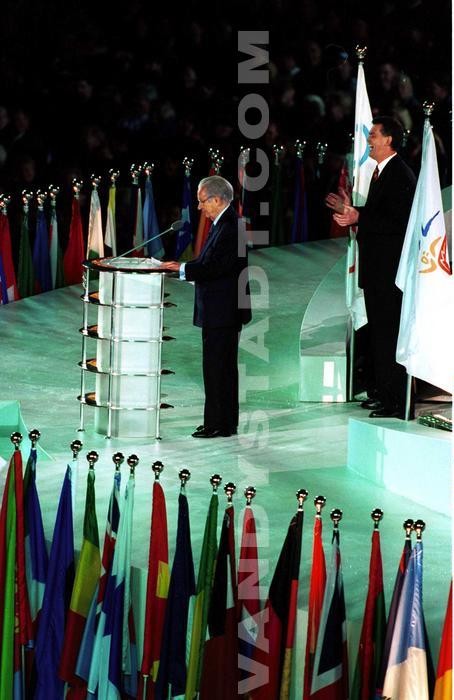
Oath of judges
An official of the organizing country swore to respect the Olympic rules of arbitration.
"On behalf of the judges and officials, I promise that during the Olympic Games we shall officiate in total integrity, compliance and regulation in the purest spirit of sport. "
The oath was first delivered in 1972.
- 1972: Heinz Pol Lay (equestrian)
- 1976: Maurice Faguet (athletics)
- 1980: Aleksander Medved (wrestling)
- 1984: Sharon Weber(Gymnastics)
- 1988: Lee Hak-rae(judo)
- 1992: Eugeni Asensi(Football)
- 1996: Hobie Billingsly (diving)
- 2000: Peter Kerr (water polo)
- 2004: Lazaros Voreaadis(Basketball)
- 2008: Huang Liping(Gymnastics)
Retrospectives Olympics
- 1900 (Paris) Games are held in the Exposition Universelle over five months. Women participated for the first time(Tennis and Croquet).
- 1904 (St. Louis) also organized as part of the Exposition Universelle over four months. Most athletes were Americans except 42 athletes from other nations.
-1906 (Athens) are held between 900 athletes from 20 countries (21 subjects). France has won a record 40 medals (15 gold, 9 silver and 16 bronze). These Games were canceled in 1910. The IOC does not make them official.
- 1908 (London) Originally, the Games were awarded to Rome (and canceled due to the eruption of Etna volcano in Naples) before being assigned to London. For the first time a stadium was built specially for the Games. First parade of athletes behind the flag of their country.
- 1912 (Stockholm) First electronic timing for races of athletics, first photo-finish (photo finish) and the first system of loudspeakers.
-1920 (Antwerp) Two years after the end of the First World War, apart from Germany and Austria. First use of the Olympic flag and the first release of doves as a symbol of peace.
-1924 (Paris) Germany does not currently participate. The film 'Chariots of Fire' by Hugh Hudson is inspired by a true story about two British athletes who ran: Harold Abrahams (Olympic champion in the 100) and Eric Liddell (Olympic champion in the 400m). For the first time, only National Olympic Committees could register participants. Athletes are housed in an Olympic Village, a collection of wooden huts.
-1928 (Amsterdam) diplomatic incident between the Americans and French. Germany is again part of the Games after 16 years absence. For the first time, women are allowed in the athletics events. They had already competed in golf, tennis, figure skating, Sailing, Swimming, shooting archery and fencing.
- 1932 (Los Angeles) Introduction of automatic timing to the hundredth of a second and the photo finish. Use of national anthems.
-1936 (Berlin) More than 4000 athletes from 49 countries participating in the Summer Games in Berlin with a massive staging showing the world the strength of the Nazi regime. Leni Riefenstahl film 'The Gods of the Stadium' fixing the black athlete unforgettable American Jesse Owens who needed 100 m, 200 m in the 4 x 100 relay and long (Adolf Hitler refused to acknowledge these achievements ). It is also the first time that the Games are broadcast on television screens installed in theaters and cinemas enabling residents to follow the exploits free.
-1948 (London) Three years after the end of the Second World War, Japan, the USSR and Germany did not participate in the Games. The games are broadcast on television. Using starting blocks in track and field races (100, 200 and 400 m).
-1956 (Melbourne) Spain, the Netherlands and Switzerland did not participate in protest against the Soviet invasion of Hungary. Egypt, Lebanon, Iraq and China boycotted the Games on the subject of Taiwan and Suez. The East German and West united behind a common flag. The equestrian events were held in Stockholm because of Australian laws stricter quarantine of horses.
- 1960 (Rome) The games have been broadcast over 100 channels of live television and delayed in 18 European countries
-1968 (Mexico) Black Power. During the medal ceremony, two black Americans, Tommie Smith and John Carlos, gold and bronze in the 200m, raised their black-gloved fists and bowed their heads during the national anthem in protest against racial segregation in United States.
-1972 (Munich) Nine Israeli athletes and a West German policeman were killed September 5 at the Olympic Village by Palestinian terrorists. The five terrorists also die. These Games were the largest ever organized: 121 countries, 7 173 athletes, 195 sports.
-1976 (Montreal) 32 African countries did not participate because of the policy of apartheid in South Africa.
-1980 (Moscow) boycott of 35 countries to protest against the invasion of Soviet troops in Afghanistan December 27, 1979.
-1984 (Los Angeles) The USSR, Cuba and 14 other nations forming the 'Iron Curtain' does not participate, claiming a lack of security and an anti-Soviet attitude on the part of the USA.
-1988 (Seoul) Seven countries boycotting the Games because North Korea does not form part of the organization. Canadian Ben Johnson , who won the 100 meters, was disqualified for doping (tested positive for steroids). He had just won the senior event, beating a new world record.
-1992 (Barcelona) The first Olympics for twelve years without a boycott. Cuba and North Korea are involved after an absence of 12 years and South Africa after 32 years absence. The West and East Germany are united under one flag as the 12 nations comprising the former USSR (CIS). These Games are the first non-smoking Games.
-1996 (Atlanta) A bombing in Olympic Park 2 fatalities and 111 injuries. Athletes from 79 countries (record), won medals, including 53 countries with at least one gold medal!
- 2000 (Sydney) Early testing for EPO, the first blood samples. South Korea and North Korea marched together under one flag.
- 2004 (Athens) Back to the cradle for the XXVIII Olympiad. Terrorism threats and problems of doping (24 athletes test positive, twice more than in Sydney) scored the games. Some security digits: 70 000 policemen, 8 AWACS radar planes, 1 Zeppelin, 120 missiles 'Patriot' ... .. and a record of 45 000 volunteers for the smooth running of events.
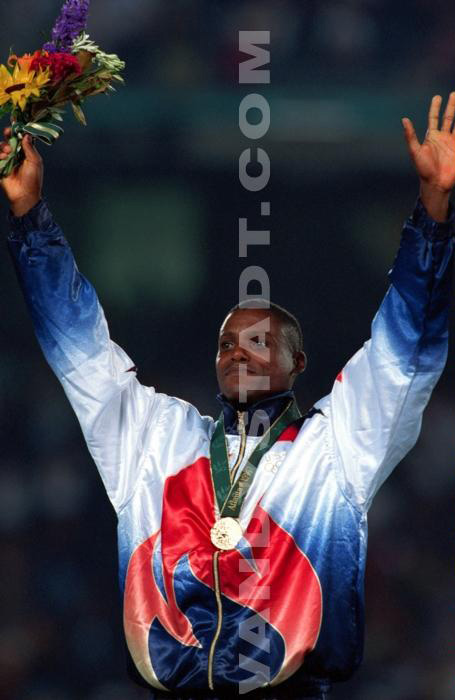
Competitions Shooting bow and arrivals marathons were held in the historic marble stadium, the Panathinaiko, while the weight men and women took part in the prestigious site of Olympia. All the medalists were wearing an olive wreath. Asia is the winner of the medal count with China, Japan and South Korea entered the top 10 medals.
- 2008 (Beijing) The 29th Olympic Games were a great success in sporting terms and in terms of organization. Chinese leaders have therefore won their Olympic challenge despite incidents of political and humanitarian developments throughout the year 2008.
Beginning with the chaotic course of the Olympic flame because of protests worldwide against Chinese rule and political oppression of the Tibetan people.
Then there was the devastating earthquake in May in Sichuan province causing over 70 000 deaths.
On 8-8-2008 at 8:08 (the number 8 is good for the Chinese: 'F' means 'health, wealth and happiness), China submitted before 91 000 spectators in the Olympic Stadium, the famous' Bird Nest ', a breathtaking opening ceremony with 14 000 extras tracing its history.
What to learn from these games:
- 37 sites including one located in Hong Kong to host the equestrian events
- 302 gold medals distributed.
- 10 624 athletes competing, including 639 Chinese (the largest delegation).
- 87 nations (for a total of 204 delegations) received at least one medal.
- 36 world records broken, including 25 in swimming in the famous aquatic center on 'Cube'.
-The 51 gold medals won by China (15 more than the U.S.) for a total of 100 medals (plus 21 silver and 28 bronze). China took first place in the medal standings, followed by the USA with 110 medals (36 gold, 38 silver, 36 bronze) and Russia with 72 medals (23 gold, 21 silver and 28 bronze) are the top three.
4 550 doping controls carried out. Six athletes were excluded against twenty-six to Athens in 2004.
The Olympics of 1916 (set in Berlin) and those of 1940 and 1944 were canceled because of the First and Second World War. The Olympic Games 1906 held in Athens, were declared unofficial by the IOC
The feats of Olympic athletes
ATHÈNES 1896
James Connolly (USA-athletics) first Olympic champion by winning the triple jump April 6
Alfred Hajos (HON-Swimming)first double Olympic champion in the 100m and 1 200m.
Spiridon Louis (GRE-athletics) won the marathon with more than seven minutes ahead.
PARIS 1900Alvin Kraenzlein (USA-athletics) quadruple Olympic champion of 60m, the 110m hurdles, 200m hurdles and long jump.
Charlotte Cooper(GBR-Tennis)is the first woman in history to win the Olympic title.
1904Archie Hahn (USA-athletics) was Champion 60m, the 100m and 200m for which he set a new Olympic record in 21.6 sec. A record that will beat that 28 years later.
Martin Sheridan (USA) wins the gold disc after dam after a successful launch was exactly identical to that of his compatriot Ralph Rose (39.28 m) judges granted them an additional jet to tie.
LONDRES 1908
Ray Ewry (USA-athletics) won his third consecutive victory jump high jump and long jump without momentum, bringing to eight the total of her Olympic medals.
Oscar Swahn (SWE-Tir)at 60 when he won his first Olympic gold medal in the event of shooting running deer, single shot. The next day he received a second gold medal in the team event. He also wins bronze in the event of shooting running deer, double shots.
STOCKHOLM 1912Jim Thorpe (USA-athletics) won the pentathlon and decathlon, a real achievement. He was described by King Gustav V of Sweden as 'the greatest athlete in the world'.
Hannes Kolehmainen (FIN-Atheta) won the 5 000m, 10 000m, the race to cross in
iduel and also won the team silver.
ANTWERP 1920
Duke Kahanamoku (USA-swimming)won his second title in the 100m freestyle and added a third gold medal to his tally in the relay.
Suzanne Lenglen (FRA-tennis),won the Olympic title with Max Decugis (FRA) won another gold medal in mixed doubles, then with Elisabeth d'Ayen (FRA) in women's doubles, she won the bronze.
Nedo Nadi (ITA-Fencing)won the trials in
iduelles foil and saber, and led the Italians to victory in three team events, which allows him to harvest a record five medals in fencing at the same Games.
PARIS 1924Paavo Nurmi (FIN-athletics) participates at 1 500 and 5 000m, where the finals are scheduled at least an hour apart, at 3 in the 000m in
iduel and team, and the cross! The Finn managed the incredible betting win five titles.
Ville Ritola (FIN-athletics) won the 10 000m, beating his own world record, then the 3 000m steeplechase. In team events, he won the cross and 3 000m with the Finnish team. He finally added two silver medals in
iduel in the 5 000m and cross country.
AMSTERDAM 1928Johnny Weissmuller (USA-swimming)won the 100m freestyle, 400m freestyle and won another gold medal with the relay team.
Betty Robinson (USA-athletics) won the women's 100m first half a meter. She also won a silver medal in the 4x100m relay.
LOS ANGELES 1932"Babe" Didrikson (USA-athletics) won the javelin throw, running the hurdles and ranks second in high jump. She would have liked to participate in other events but women could not compete in more than three events in
iduelles athletics.
Helene Madison(USA-swimming)won the 100m freestyle. Four days later, it allows the U.S. team to victory in the 4x100m freestyle relay. The next day, the 400m she won a third gold medal.
BERLIN 1936
Jesse Owens (USA-athletics) won four gold medals: 100m, 200m, 4x100m relay and long jump. Owens is one of the first American athletes whose popularity crosses racial barriers.
Jack Beresford (GBR-rowing)set a record by winning a fifth Olympic medal. After winning gold in single scull (1924) and the four without coxswain (1932), then silver in the single scull (1920) and in eight (1928), he added a gold medal to his charts double scull.
LONDON 1948Fanny Blankers-Koen (NED-athletics) won the 100m, 200m, 80m hurdles and relays. It also can take part in more competitions for women are still unable to participate in more than three athletics events. Yet she had the world record of jumping height and length.
HELSINKI 1952Emil Zatopek (CZE-athletics) one of the greatest performances in the history of athletics. He won the 5 000m, successfully defending his title in the 10 000m before pocketing his third gold medal for his first marathon and thus achieve a hat-trick which remains unique in Olympic history.
Karoly Takacs (HUN-shooting gun) won the gold medal and improved the world record of ten points. He had his right hand - the one he used for shootingfirst - torn by the explosion of a grenade defective. After a month in hospital, he learned by secretly shootingfirst with his left hand.
Bob Mathias (USA-athletics) was the first to win the Olympic decathlon at two successive occasions. Having won its first gold medal in 17 years - the youngest gold medalist of Olympic athletics event in history - he defends his title and beat the world record.
MELBOURNE / STOCKHOLM 1956Elizabeth "Betty" Cuthbert (AUS-athletics) won two gold medals in race
iduelle (100 and 200m) and third in the 4x100m relay.
Alain Mimoun (FRA-athletics) beat Emil Zatopek (CZE-athletics) marathon
Murray Rose (AUS-swimming),A17-year-old won three gold medals. He earned his first medal, beating the world record in the 4x200m freestyle relay with the Australian. He then won the 400m and 1 500m freestyle
ROME 1960Abebe Bikila (ETH-athletics) won the marathon barefoot
Wilma Rudolph (USA-athletics) became the first American woman to win three gold medals: 100m, 200m and 4x100m relay.
Cassius Marcellus Clay(USA-Boxing)won the gold medal in light heavyweight.
TOKYO 1964Dawn Fraser (AUS-swimming)won his third successive gold medal in the 100m freestyle. It is the first swimmer to win eight medals (4 gold and 4 silver) in three Olympic Games.
Larisa Latynina(URS-gymnastics)adds six medals to its medal tally. In three Games, she won 9 gold medals, 5 silver and 4 bronze medals for a total of eighteen medals.
Deszo Gyarmati (HUN, water polo) won gold with the team of Hungary and thus realizes the unique feat of winning a medal in five successive editions of the Games of the Olympiad.
MEXICO 1968Bob Beamon (USA-athletics) beat the world record long jump: 8.90 meters, an improvement of 55 inches world record.
Caslavska Vera(TCH-gymnastics)won three gold medals and one silver medal by beating the Russians.
Debbie Meyer (USA-swimming)is the first swimmer to win three gold medals as in
iduel to 200, 400 and 800m freestyle at the same Games.
MUNICH 1972Mark Spitz (USA-swimming)is entered in seven events and won a record unique in Olympic history: seven Olympic titles and seven world records.
Meyfarth Ulrike (GER-athletics) to 16 years to improve its performance better than seven centimeters and equal the world record. She became the youngest athlete to win the Olympic title in an event in
iduelle athletics.
Shane Gould (AUS-swimming)won the 200m and 400m freestyle and the 200m in
iduel medley, beating each time the world record. Besides his three gold medals, she captured silver in the 800m and bronze in the 100m freestyle.
MONTREAL 1976Nadia Comaneci (ROM-gymnastics)was the first gymnast in Olympic history to be awarded a perfect score of 10.0. She achieved her first perfect 10 on the uneven bars, and the judges awarded her the maximum mark seven times.
Lasse Viren (FIN-athletics) won for the second consecutive time the 5 000m and 10 000m.
Klaus Dibiasi (USA-diving) became the first diver to win three successive gold medals and get medals in four Games.
MOSCOW 1980Steve Ovett (GBR-athletics) and Sebastian Coe (GBR) compete in two memorable duels. In the 800m, Ovett wins ahead of his compatriot. Six days later, Coe returned more determined than ever at 1 500m and won the victory, leaving the bronze to its rival.
Vladimir Salnikov (URS-swimming)received three gold medals in the 400m freestyle, the 4x200m relay and in the 1 500m. This is the first time a swimmer drops below 15 minutes to 1 500m. Eight years later, he will win again on 1 500m.
Alexsandra Dityatin(URS-gymnastics)won 8 medals and took part in all finals. He won the team competition, the competition in general
iduel and rings. He then obtained the money in the vault, parallel bars, high bar and pommel horse, then the bronze ground.
LOS ANGELES 1984Carl Lewis (USA-athletics) won four gold medals: 100m, 200m, 4x100m relay and long jump.
Daley Thompson (GBR-athletics) in the decathlon, won its second consecutive gold medal.
SEOUL 1988Matt Biondi (USA-swimming)won seven medals including five gold. His gold medals in the 50m and 100m freestyle and three relays finished second in the 100m butterfly and third in the 200m freestyle.
Sergei Bubka (URS-athletics) became Olympic he won the gold medal, clearing 5.90m at the third attempt.
Christa Luding-Rothenburger(GER-cycling and speed skating) won a silver medal in cycling. A few months earlier, she won two medals in speed skating. It is one of the few athletes to win medals at the Winter Games and Summer.
BARCELONA 1992The "Dream Team"(USA-Basketball),a dream team including Magic Johnson, Michael Jordan , Larry Bird and Charles Barkley . In eight games, the U.S. team mark of 117 points on average without downtime.
Derartu Tulu (ETH-athletics) at 10,000 m and won the victory. It is the first female black African Olympic champion
ATLANTA 1996Michael Johnson (USA-athletics) won the 200m and 400m men. In the 200m, he set a new world record at 19 '32, a performance akin to 8.90m Bob Beamon long jump
Marie-Jose Perec (FRA-athletics) won the 200m and beat the Olympic record in the 400m, taking it into the best world performance of the last ten years. It thus becomes the French champion the most successful of all time and the first woman to retain the Olympic title in the 400m.
Aleksandr Popov(RUS-swimming)won two gold medals and two silver medals.
Naim Suleymanoglu (TUR-weightlifting) became the first weightlifter in history to win a third consecutive Olympic title.
SYDNEY 2000Ian Thorpe (AUS-swimming),17, won the gold medal in the 400m freestyle by breaking his own world record. He then participated in the 4x100m relay and 4x200m freestyle and won again. He added a silver medal in the 200m freestyle.
Marion Jones (USA-athletics) became the first woman to ride five times on the podium during the same Games. She won the 100m and 200m. Then she earned a bronze medal in long jump and 4x100m relay at. Finally, she won the 4x400m relay with the U.S. team.
David Douillet (FRA-Judo)won his second consecutive Olympic title in the heavy category.
ATHENS 2004Hicham el-Guerrouj (MAR-athletics) was required on the 1500 and 5000 m, the second doubled the history of the Games on the distance after that of Finland Paavo Nurmi in 1924.
Robert Korzeniowski (POL-athletics) won the 50 km walk to the thirth times in a row. With another gold medal in 20 km walk in 2000, he was hoisted to the highest ranks of Olympic champions having won the most gold medals in
iduelles.
Michael Phelps (USA-swimming)won a total of 8 medals including 5 gold. However, he failed his bet to exceed Mark Spitz .
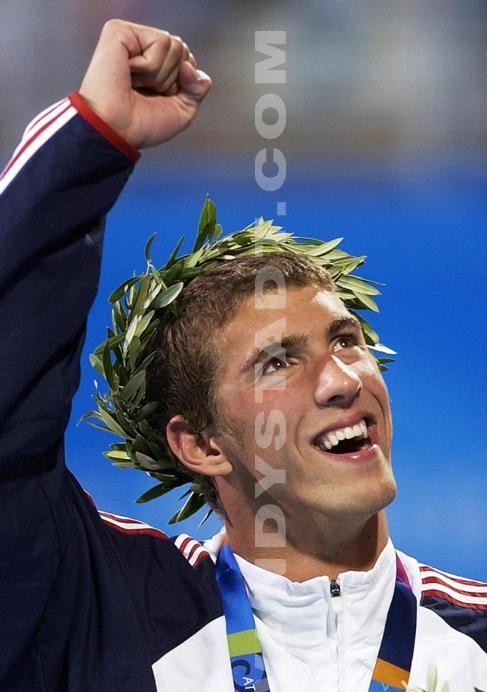
Birgit Fischer-Schmidt (GER, canoe-kayak), 42, added one gold and one silver to his impressive track record. It is now among the most decorated athlete in Olympic history with 12 medals including 8 gold won in an interval of 24 years.
Tamura Ryoko Tani(JPN-Judo)becomes Judoka the most decorated Olympic history (men / women combined) with two gold medals (2000 and 2004) and two silver medals (1992 and 1996) . Compatriot Tadahiro Nomura managed a hat-trick history by becoming the third consecutive Olympic champion and that in the same weight category (-60 kg).
Beijing (Peking) 2008
Michael Phelps (USA-swimming)has succeeded to surpass the feat of Mark Spitz with 7 gold medals in 1972. He won 8 gold medals (7 beating world records). Now it is the athlete in any sport of the Summer Games, with more Olympic medals (a total of sixteen), most of Olympic gold medals (a total of fourteen including nine as in
iduel)
Usain Bolt (JAM-Athletics) rocket sprint world who has won three Olympic titles (100m, 200m and 4 x 100 m) in each time beating the world record, a feat never achieved!
Kenenisa Bekele (ETH-athletics) conducted a double Olympic 5 000 and 10 000 m, the sixth athlete to have done this after Hannes Kohlemainen in 1912, Emil Zatopek in 1952, 1956 Vladimir Kuts , Lasse Viren in 1972 and 1976 and Miruts Yifter in 1980.
Shootingunesh Dibaba (ETH-athletics) has also managed the double in 5000 and 10 000 m, a first in the women's Olympic background.
Chris Hoy(GBR-Cycling)was the fastest rider of the Games. Unbeatable on the track with three gold medals.
Three other athletes have won three gold medals:
Stephanie Rice (AUS-swimming),Trickett Lisbeth Lenton(AUS-swimming)and Zou Kai(CHN-Gymnastics).
Note also the exploits of two female athletes who have managed to retain their Olympic titles three and four times in succession: the Basketteuse American Lisa Leslie (1996, 2000, 2004 and 2008) and the Dutch Anke van Grunsven in dressage in
iduel (2000, 2004 and 2008).
China has the grand slam tennis table and badminton in sweeping up all the medals in men and women.
The Olympic Games 2012:
On July 5, 2005, the city of London has been designated city for the Olympic organizing XXX Games (the other bidding cities were Istanbul, Havana, Leipzig, Madrid, Moscow, New York, Paris and Rio de Janeiro). They will take place from July 27 to August 12, 2012.
The 2016 Olympic Games:
On October 3, 2009, the city of Rio de Janeiro in Brazil has been chosen to host the XXXI Olympic Games. Elected on the third ballot with 66 votes against 32 in Madrid, Rio will be the first South American continent to host the Olympic appointment. other bidding cities were Tokyo, Chicago and Madrid). The scheduling: from 5 to 21 August 2016.
The Paralympic Games
The Paralympic Games are a sporting event for top level athletes with different disabilities. However, they highlight the performance of sports participants, not their disability. The movement has grown considerably since its inception. The number of athletes participating in Summer Paralympic Games has increased from 400 in Rome in 1960 to 3 843 (from 122 countries) in Sydney in 2000.
The medal
From 1896 to 1928, the ceremony took place medals at the closing ceremony of the Games. A byshooting in 1932, the medals are awarded after each compétiton.
The medals must have at least a diameter of 60 mm and a thickness of 3 mm. The medal first place must be gilded with at least 6 grams of gold, the other two medals are silver. The names of all medal winners are inscribed on the walls of the main stadium where the Games were held.
Olympic Medals
From 1896 to 1928, the ceremony took place medals at the closing ceremony of the Games. A byshooting in 1932, the medals are awarded after each competition.
The medals must have at least a diameter of 60 mm and a thickness of 3 mm. The medal first place must be gilded with at least 6 grams of gold, the other two medals are silver. The names of all medal winners are inscribed on the walls of the main stadium where the Games were held.
Accumulation of gold medals per athlete
Men
14 medals
Michael Phelps USA - Swimming between 2004 and 2008
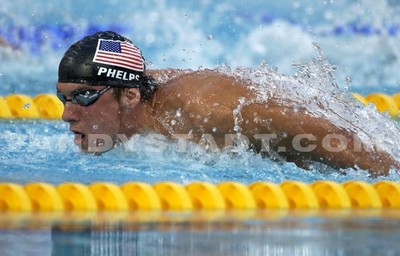
9 medals
Paavo Nurmi FIN - Athletics between 1920 and 1928.
Mark Spitz USA - Swimming between 1968 and 1972.
Carl Lewis USA - Athletics between 1984 and 1996.
8 medals
Ray Ewry USA - Athletics between 1900 and 1908 (he won 2 more gold medals at the Olympics unofficial 1906).
Sawao Kato Japanese - Gymnastics between 1968 and 1976.
Matt Biondi USA - Swimming between 1984 and 1992.
7 medals
Aladar Gerevich HON - Fencing between 1932 and 1960.
Viktor Chukarin USSR - Gymnastics between 1952 and 1956.
Boris Chakline USSR - Gymnastics between 1956 and 1964.
Nikolai Andrianov Soviet Union - Gymnastics from 1972 to 1980.
Reiner Klimke
ALL then RFA - Horseriding between 1960 and 1988.
Women
9 medals
Larissa Latinina USSR - Gymnastics between 1956 and 1964.
8 medals
Jenny Thompson USA - Swimming between 1992 and 2000.
Birgit Fischer-Schmidt GDR then ALL - Canoe / Kayak between 1980 and 2004.
7 medals
Vera Caslavska TCH - Gymnastics with 7 medals between 1960 and 1968.
Jenny Thompson
USA - Swimming between 1992 and 2004.
The two sports most individual medals:
Men
12 medals - Nikolai Andrianov Soviet Union - Gymnastics (6 gold, 3 silver and 3 bronze) between 1972 and 1980.
Women
14 medals - Larissa Latinina USSR - Gymnastics (7 gold, 4 silver and 3 bronze) between 1956 and 1964.
Largest number of gold medals in individual events
Men
9 medals - Michael Phelps USA, from 2004 to 2008
8 medals - Ray Ewry USA Athletics, 1900-1908
Women
7 medals - Vera Caslavska TCH Gymnastics, 1960-1968
Accumulation of medals per athlete
Men
16 medals
Michael Phelps USA - Swimming (14 gold, 2 bronze)
15 medals
Nikolai Andrianov Soviet Union - Gymnastics (7 gold, 5 silver and 3 bronze)
13 medals
Boris Chakline USSR - Gymnastics (7 gold, 4 silver and 2 bronze).
Edoardo Mangiarotti ITA - Fencing (6 gold, 5 silver and 2 bronze).
Takashi Ono JAP - Gymnastics (5 gold, 4 silver and 4 bronze).
12 medals
Paavo Nurmi FIN - Athletics (9 gold, 3 silver).
Sawao Kato Japanese - Gymnastics (8 gold, 3 silver, 1 bronze).
RUS Alexei Nemov - Gymnastics (4 gold, 2 silver, 6 bronze).
11 medals
Mark Spitz USA - Swimming (9 gold, 1 silver and 1 bronze).
Matt Biondi USA - Swimming (8 gold, 2 silver and 1 bronze).
Viktor Chukarin USSR - Gymnastics (7 gold, 3 silver and 1 bronze).
Carl Osburn USA - Shooting (5 gold, 4 silver, 2 bronze).
10 medals
Carl Lewis USA - Athletics (9 gold, 1 silver).
Aladar Gerevich HON - Fencing (7 gold, 1 silver, 2 bronze).
Akinori Nakayama Japanese - Gymnastics (6 gold, 2 silver and 2 bronze).
Aleksandr Ditiatine USSR - Gymnastics (3 gold, 6 silver, 1 bronze).
Vitaly Scherbo IEC and BLR - Gymnastics (6 gold, 4 bronze).
9 medals
Zoltan Halmay HON - Swimming (3 gold, 5 silver, 1 bronze).
Giulio Gaudini ITA - Fencing (3 gold, 4 silver, 2 bronze).
Mikhail Voronin USSR - Gymnastics (2 gold, 6 silver, 1 bronze).
Heikki Savolainen FIN - Gymnastics (2 gold, 1 silver, 6 bronze).
Yuri Titov USSR - Gymnastics (1 gold, 5 silver, 3 bronze).
Women
18 medals
Larissa Latinina USSR - Gymnastics (9 gold, 5 silver, 4 bronze).
12 medals
Jenny Thompson
USA - Swimming (8 gold, 3 silver, 1 bronze).
Birgit Fischer-Schmidt GDR then ALL - Canoeing (8 gold, 4 silver).
Dara Torres
USA - Swimming (4 gold, 4 silver, 4 bronze).
11 medals
Vera Caslavska
TCH - Gymnastics (7 gold, 4 silver).
10 medals
HON Agnes Keleti
- Gymnastics (5 gold, 3 silver, 2 bronze).
Polina Astakhova
USSR - Gymnastics (5 gold, 2 silver, 3 bronze)
Franziska Van Almsick
ALL - Swimming (4 silver, 6 bronze)
9 medals
Nadia Comeneci ROU - Gymnastics (5 gold, 3 silver, 1 bronze).
Ludmilla Touritcheva USSR - Gymnastics (4 gold, 3 silver, 2 bronze).
8 medals
Elizabetha Lipa ROU - Rowing (5 gold, 2 silver, 1 bronze).
Kornelia Ender
GDR - Swimming (4 gold and 4 silver).
Dawn Fraser
AUS - Swimming (4 gold and 4 silver).
Shirley Babashoff
USA - Swimming (2 gold, 6 silver).
Merlene Ottey
JAM - Athletics (3 silver, 5 bronze).
Sofia Muratova
USSR - Gymnastics (2 gold, 2 silver, 4 bronze).
Trillini Giovanni ITA - Fencing (4 gold, 1 silver, 3 bronze).
Leisel Jones
AUS - Swimming (3 gold, 4 silver, 1 bronze).
ALL Isabell Werth
- Equestrian Dressage in (5 gold, 3 silver).
Anky Van Grunsven
NED - Horse riding in dressage (3or, 5 silver)
Inge De Bruijn
NED - Swimming (4 gold, 2 silver, 2 bronze)
Petria Thomas
AUS - Swimming (3 gold, 4 silver, 1 bronze)
AUS Susie O'Neill - Swimming (2 gold, 4 silver, 2 bronze)
Margit Korondi
HON - Gymnastics (2 gold, 2 silver, 4 bronze)
The largest number of gold medals at a single edition
For men: 8 Michael Phelps
USA Swimming in 2008
For women: 6 GDR Kristin Otto
, Swimming in 1988
Largest number of gold medals in one day
4 Vitaly Scherbo USSR Gymnastics in 1992
Large number of silver medals
6 medals
Aleksandr Ditiatin USSR Mikhail Voronin Soviet gymnastics.
Shirley Babashoff
USA swimming.
5 medals
Edoardo Mangiarotti
ITA and ITA Gustavo
-007255.html' >Gustavo Marzi
fencing.
Nikolai Andrianov Soviet Union, Soviet Union Yuri Titov, Viktor Lisitsky
USSR USSR Latinina Larissa and Maria Gorokhovskaya USSR gymnastics.
Zoltan Halmay
HON, CIS and Alexander Popov
RUS and Dagmar Hase
ALL swimming.
Large number of bronze medals
6 medals
Heikki Savolainen
FIN and Alexei Nemov RUS gymnastics.
Franziska Van Almsick
ALL swimming
5 medals
Daniel Average FRA and Adrianus De Jong
NED fencing.
Philip Edwards CAN and Merlene Ottey
JAM athletics.
Antje Buschschulte
ALL swimming
4 medals
Margit Korondi
HON, Larissa Latinina USSR and Sofia Muratova
USSR gymnastics
Dara Torres
USA and Franziska Van Almsick
ALL swimming.
Large number of consecutive victories won in the same event
Men:
6 Aladar Gerevich
HON, fencing, saber team, from 1932 to 1960.
In women
3 by 26 different athletes.
Large number of consecutive victories won in the same individual event
Men:
4 Paul Elvström DAN, sailing, dinghy solo from 1948 to 1960, Al Oerter
USA, athletics, discus throw from 1956 to 1968 and Carl Lewis
USA, athletics, long jump, from 1984 to 1996.
In women
3 Larissa Latinina USSR, gymnastics, floor from 1956 to 1964, Dawn Fraser
AUS, swimming, 100 m from 1956 to 1964 and Krisztina Egerszegi
HON, swimming, 200m back from 1988 to 1996 and Anky Van Grunsven
NED, equitation, dressage, 2000 2008.
Multi medal in the same event
6 medals
Aladar Gerevich HON - saber team (6 gold) between 1932 and 1960.
5 medals
Deszo Gyarmati HON - water polo (3 gold, 1 silver, 1 bronze) between 1948 and 1964.
Pal Kovacs HON - saber team (5 gold) between 1936 and 1960.
John Michael Plumb USA - Eventing Team (2 gold, 3 silver) between 1964 and 1984.
Multi medals in one Olympiad
8 medals
Alexander Ditiatin USSR - gymnastics in 1980.
Michael Phelps USA - swimming in 2008.
7 medals
USSR Nikolai Andrianov - gymnastics in 1976.
Matt Biondi USA - swimming in 1988.
Maria Goroshovskaya USSR - gymnastics in 1952.
Willis Lee USA - shot in 1920.
Boris Shakline USSR - gymnastics in 1960.
Mark Spitz USA - swimming in 1972.
Lloyd Spooner USA - shot in 1920.
Mikhail Voronin USSR - gymnastics in 1968.
Michael Phelps USA - swimming in 2008
6 medals
Viktor Chukarin USSR - gymnastics in 1956
Burton Downing USA - Cycling in 1904
George Eyser USA - gymnastics in 1904
Konrad Frey ALL - gymnastics in 1936
Anton Heida USA - gymnastics in 1904
Akinori Nakayama Japanese - gymnastics in 1968
Alexei Nemov RUS - gymnastics in 1996 and 2000
Li Ning CHN - gymnastics in 1984
Takashi Ono JAP - gymnastics in 1960
Carl Osburn USA - shot in 1920
Louis Richardet SUI - shot in 1906
Vitaly Scherbo BLR - gymnastics in 1992
Hubert Van Innis BEL - archery in 1920
Michael Phelps USA - swimming in 2004
Medal Winners in several tests
11 events
Carl Osborn USA - shooting
9 events
Hubert Van Innis BEL - archery
8 events
USSR Nikolai Andrianov - gymnastics
Alexander Ditiatin USSR - Gymnastics
The greatest number of consecutive victories in one individual event
Men
4 Pol Elvström DAN, sailing (solo) 1848-1960
4 Alfred Oerter USA, athletics (discus throw) 1959-1968
4 Carl Lewis USA, athletics (long jump) 1984-1996
Women
3 Larisa Latynina Soviet Union, gymnastics (floor exercises) 1956-1964
AUS 3 Dawn Fraser , swimming (100 m) 1956-1964
3 Krisztina Egerszegi HON, swimming (200 backstroke) 1988-1996
3 Valentina Vezzali ITA, fencing (foil) 2000-2008
3 Anky Van Grunsven NED, riding (dressage) 2000-2008
Medal Winners in several Olympiads
6 OJ
Aladar Gerevitch HON - Fencing 1932, 1936, 1948, 1952, 1956, 1960.
Elizabetha Lipa ROU - rowing in 1984, 1988, 1992, 1996, 2000, 2004.
Birgit Fischer ALL - canoe / kayak in 1980, 1988, 1992, 1996, 2000, 2004.
5 OJ
Jack Beresford , GBR - rowing in 1920, 1924, 1928, 1932, 1936.
Gustaf Fischer SUI - riding in 1952, 1956, 1960, 1964, 1968.
Reiner Klimke ALL - riding in 1964, 1968, 1976, 1984, 1988.
Pal Kovacs HON - Fencing 1936, 1948, 1952, 1956, 1960.
GBR Steve Redgrave - Rowing in 1984, 1988, 1992, 1996 and 2000.
They were medal winners in different sports
Fernand De Montigny BEL - fencing and field hockey.
Conn Findlay USA-rowing and sailing.
Fritz Hoffmann ALL - athletics and gymnastics.
Viggo Jensen DAN - shooting and weightlifting.
William Metz USA - athletics and gymnastics.
Carl Schumann ALL - gymnastics and wrestling.
Jacob Tullin Thams NOR - ski jumping and sailing.
Johnny Weissmuller USA - swimming and water polo.
Roswitha Krause ALL - swimming and handball.
Rebecca Romero GBR - cycling and rowing
They have been medalists in summer and winter
Jacob Tullin Thams NOR - Ski Jump (1924) and sailing (8 m in 1936)
Eddie Eagan U.S. - boxing (light heavy in 1920) and bobsled (4 in 1932)
Christa Rothenburger GDR then ALL - Cycling (1988 speed) and speed skating (500 m in 1984 and 1992, 1000 m in 1988)
Clara Hughes CAN - Cycling (road race and TT in 1996) and speed skating (5000 m in 2002).
- Germany's Christa Rothenburger is the only sports medal that year at the Olympic Winter and Summer in 1988, in Seoul in cycling and speed skating in Calgary.
- Olympic champion is the oldest Swede Oscar Swahn who won Olympic gold in 1912 at the age of 64 years and 257 days in a shooting event (running deer single team) in women 's is the UK Sybil Newall in 1908 at the age of 53 years and 277 days in archery.
- Olympic champion in the older an individual event is English Joshua Millner, winner of the event's gun war, the Games of 1908 at the age of 61 years.
- Olympic medalist is the oldest Swede Oscar Swahn , who won silver in the 100 shot running deer, double team in 1920 at the age of 72 years and 279 days for women, is the British Sybil Newall, 1908 at the age of 53 years and 277 days in archery.
- Olympic medalist in the older an individual event is the Swede Oscar Swahn , winning the bronze medal in the 100 shooting games of 1912 at the age of 64 years.
- The youngest Olympic champion in an individual event is the American Marjorie Gestring who won the gold medal in diving in 1936 at the age of 13 years and 268 days. That same year, Inge Sorensen of Denmark took the bronze medal in the 200m breaststroke at only 12 years and 24 days and is still the youngest Olympic medalist in history in an individual event, in men, the most young champion Olympic najeur the Japanese Kusuo Kitamura , who won the medal in the 1500m swim, At the age of 14 years and 309 days 1932.Le Danes Nils Skoglund is the youngest medalist in an individual event with his silver medal dives, high-flying in 1920 at the age of 14 years and 11 days.
- The youngest known medalist is a young French which we still do not know the identity, despite numerous searches. In 1900, during rowing, the Dutch team of two with a helmsman helmsman Chechi. He is a young French was chosen. After winning the race with his teammates, he was caught on camera on the podium during the medal ceremony. From the pictures, the boy appeared to have between 7 and 10 years.
Records of holdings:
- Austrian Hubert Raudaschl is the only athlete to have attended nine different Olympics between 1964 and 1996 in sailing. It was already present as a replacement for the 1960 Olympics in Rome.
Eight entries:
- DAN Paul Elvstrom in sailing (1948-1988)
- Durward Knowles BAH in sailing (1948-1988)
September entries:
- Kerstin Palm SUE fencing (1964-1988)
- Merlene Ottey JAM and SLV in athletics (1980-2004)
- Jeannie Longo FRA cycling (1984-2008)
- Ivan Osii DAN fencing (1908-1948)
- John Michael Plumb Riding in USA (1960-1992)
- Francisco Boza in shooting RIP (1980-2004)
- Juan Giha in shooting RIP (1972-2000)
- Francois Fortune NZL in shooting (1952-1976)
- Ragnar Skanåker SUE in shooting (1972-1996)
The American Sheila Taormina
is the first athlete, male and female, have participated in Olympic Games in three different disciplines: swimming in 1996 (gold medal with the relay 4 x 200 m), triathlon in 2000 and 2004 (6th place in 2000) and modern pentathlon in 2008 that thirty-nine years!
Sports Olympic Games Summer
Olympic sports: Athletics, Rowing, Badminton, Baseball, Basketball, Boxing, Canoeing, Cycling, Equestrian, Fencing, Football, Gymnastics, Weightlifting, Handball, Hockey, Judo, wrestling, modern pentathlon, softball , Taekwondo, Tennis, Table Tennis, Shooting, Archery, Triathlon, Sailing, Volleyball.
There have been no new Olympic sport in 2008, few disciplines are as cons become Olympic BMX cycling. But many sports had asked to be included in the program such as karate, water skiing, golf and rugby.
Climbing, bridge, golf, skating and surfing are sports recognized by the International Olympic Committee (IOC). The International Sports Federations (IFs) that administer these sports must ensure that their statutes, practices and activities comply with the Olympic Charter.
- 1896: athletics, cycling, fencing, gymnastics, weightlifting, swimming, tennis and shooting
- 1900: rowing, archery, football, golf, rugby, sailing, cricket, croquet, polo, tug of war
- 1904: Boxing, wrestling, lacrosse, roque
- 1908: Field hockey, tennis, motorboat, extortion
- 1912: Equestrian, Modern Pentathlon
- 1936: Basketball, Canoeing, Handball
- 1964: Judo, Volleyball
- 1988: Taekwondo, table tennis
- 1992: Badminton, Baseball
- 1996: Softball
- 2000: Triathlon
- 2016: Golf, rugby sevens
* Italic, sports disappeared from the Olympic program
** Tennis has disappeared after 1924 but was reintroduced in 1988, golf has been present in 1900 and 1904 and will again be an Olympic sport in 2016.
Sports disappeared
Motorboats: present in 1908
Cricket: present in 1900
Croquet and Roque (American version of croquet): present in 1900 for croquet and 1904 for castling
Jeu de Paume: present in 1908
Lacrosse (Canadian ball game competing with sticks fitted with screens): present in 1904 and 1908
Polo: present in 1900, 1908, 1920, 1924 and 1936
Rackets (ancestral variant of squash): present in 1908
Rugby union: this in 1900, 1908, 1920 and 1924
Tug in athletics: now in 1900, 1904, 1906, 0908, 1912 and 1920
See also:
Olympic Games was
Balance of medals from 1896 to 1948
Olympic Games was
Balance of medals from 1952 to 1968
Olympic Games was
Balance of medals from 1972 to 2008
Olympic Games was
Good to know Summer Olympics
Olympic Games was
Politics and the Olympics
Olympic Games was
The most successful athletes at Olympic Summer Games
Olympic Games was
Other Games
Olympic Games was
The key dates of timekeeping at the Olympic Games
Olympic Games was
The sporting Olympic Summer
Olympic Games was
The French medal at the Olympics
Olympic Games was
The best athletes of the Olympic Games edition
Olympic Games was
Records in the Summer Olympics
Olympic Games was
Olympic Games
Olympic Games was
Retrospectives of the Summer Olympics
Olympic Games was
Statistics Olympics
Olympic Games was
Total medals by country from 1896 to 2008
Olympic Games was
All results of all Summer Olympic Games
Copyright Sportquick/Promedi






.gif)
